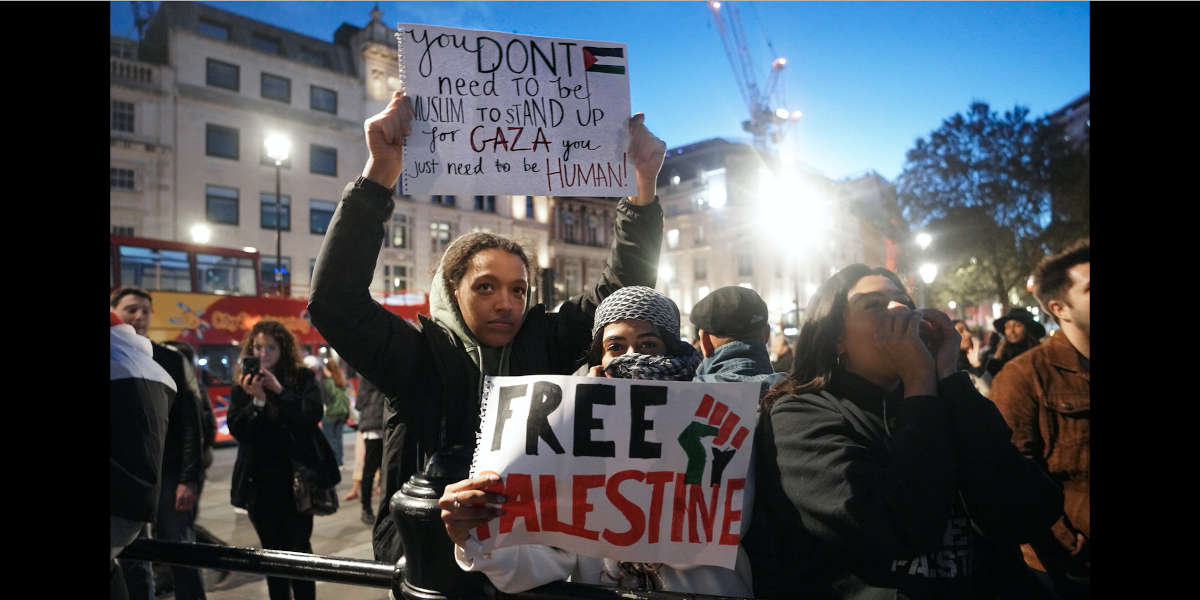
After more than a year of warfare, Israel has undergone significant changes, according to analysts. The conflict, which has resulted in the deaths of over 42,000 Palestinians, has not fulfilled many of the objectives stated by Israel for initiating the hostilities. In fact, the nation’s internal security appears to be more fragile now than it was at the onset of fighting, which began on October 7, 2023, following a Hamas-led attack that claimed the lives of 1,139 people and took approximately 250 hostages.
On October 17, 2024, Israel announced the killing of Yahya Sinwar, the Hamas leader believed to be the architect of the October 7 attacks. This development was initially seen as a potential turning point, but instead of moving toward a ceasefire and negotiations for the release of hostages, Israel’s stance has become increasingly aggressive.
The Israeli military initiated its operations against Gaza following the Hamas attacks and subsequently found itself engaged on multiple fronts. In addition to Gaza, the conflict soon expanded to include exchanges of fire with Hezbollah, a Lebanese militant group, which began targeting Israeli military positions in solidarity with Gaza.
Despite the heavy toll in civilian lives, Israel continues to assert that it is combating Hamas militants who they claim have regrouped in areas they previously deemed secured. This ongoing conflict has contributed to a perception among many Israelis that warfare is now an inherent part of their national identity.
Analyst Ori Goldberg remarked that the Israeli public has grown to accept war as a necessary element of existence, regardless of the reasons behind it. Many view military action as the sole solution to the country’s ongoing challenges.
The persistent conflict has created deep societal divisions within Israel. Prime Minister Benjamin Netanyahu’s government has leaned heavily toward right-wing elements in response to the October 7 attacks, further solidifying their influence in the political landscape. This has been accompanied by a series of measures aimed at limiting judicial oversight over governmental actions and policymaking.
Prominent figures within the Israeli right, such as National Security Minister Itamar Ben-Gvir and Finance Minister Bezalel Smotrich, have gained significant power, enabling them to dictate policy and shape national discourse. The government’s efforts to secure the release of captives have been utilized to push for more aggressive stances toward Palestinians and to further their expansionist agendas.
In recent months, the Israeli police force has increasingly aligned itself with the objectives of Ben-Gvir, reflecting a broader shift in the country’s security apparatus. Ben-Gvir’s influence has also extended to the establishment of a volunteer “national guard” intended to respond to Palestinian unrest arising from Israeli land seizures and military actions.
As these developments unfolded, the traditional secular Israeli majority has begun to feel increasingly alienated from the political landscape dominated by the far-right factions. Some members of this majority have reportedly chosen to leave Israel, contributing to concerns about the nation’s future viability as a Jewish state.
The psychological impact of the conflict, particularly the events of October 7 and the ongoing uncertainty surrounding the fate of captives, has created a lasting emotional scar on the Israeli populace. Many continue to grapple with the feelings of pain, humiliation, and anger stemming from the attacks, and these sentiments have been leveraged by politicians across the spectrum to justify continued military action.
Despite significant military efforts, analysts indicate that Hamas retains a presence and capability to resist Israeli forces. The organization is believed to have trained new recruits in the wake of heavy casualties and continues to maintain operational strength.
While Israel claims to have dismantled much of Hamas’s military infrastructure, the group remains capable of launching coordinated attacks and quickly regaining territory that had previously been cleared by Israeli forces. Reports suggest that Hamas’s resilience is bolstered by its ability to govern and provide for the needs of its constituents in Gaza, further complicating Israeli efforts to achieve lasting control.
Netanyahu’s ongoing military campaigns in Gaza and Lebanon are characterized by a growing sense of zealotry, with observers noting an increasingly “messianic” approach to the conflict. Analysts point to a lack of clear strategy or planning within the Israeli government, which they view as problematic for the country’s future.
The continued fighting, coupled with the rising influence of extremist factions, has raised alarm bells among those who fear the potential for internal strife. The gulf between the secular majority and the ascendant far-right is widening, prompting some to question the sustainability of Israel’s current trajectory.
As the conflict rages on, the absence of a clear resolution or pathway to peace leaves many Israelis feeling unsettled. The psychological and social repercussions of the year-long war are likely to be felt for years to come, potentially reshaping the nation in ways that remain uncertain.
Ultimately, the dynamics of the conflict reflect deeper issues within Israeli society and governance, raising important questions about the future of the state and the prospects for achieving a sustainable peace in the region.Continuing from the previous paraphrase, here’s an expanded version that explores more aspects of the situation and its implications for Israel and the region.

